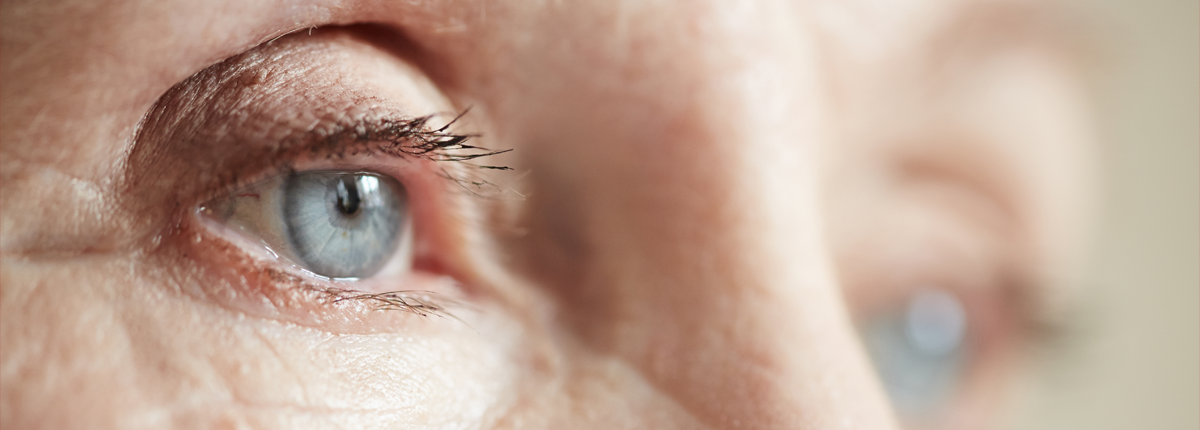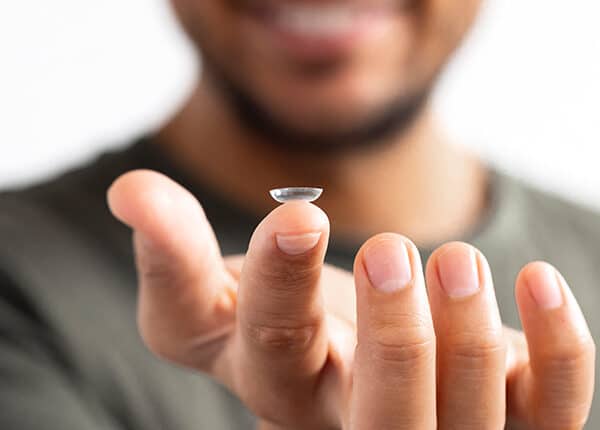
COVID-19 Confusion Causes Risk of Increased Blindness
20 APR 2020
Eye conditions Eye health
Eye Injections Shouldn’t Be Cancelled
As a result of the fear and confusion around COVID-19, there is a massive increase in the number of people who could unnecessarily lose their sight to wet age-related macular degeneration (AMD) due to cancelling eye health and macular degeneration treatment appointments.
Australians are required to stay at home, and only go out under certain conditions, in order to flatten the curve and slow the spread of the virus.
Although people can leave the house for essential services, some older Australians won’t leave at all for fear of contracting the coronavirus disease, even for essential eye health appointments that could help them save their sight.
One in seven Australians over the age of 50 have signs of AMD, and the incidence increases with age.
Wet AMD requires treatment for many years but because of the pervading fear around the virus, 33% of patients are cancelling this essential medical treatment.
Eye Injections Shouldn’t Be Cancelled
“Ophthalmologists are seeing a worrying increase in the number of people cancelling eye injections,” said Prof Paul Mitchell AO, internationally renowned ophthalmologist and National Research Advisor for Macular Disease Foundation Australia (MDFA).
“In my own clinic, up to one third of patients with conditions such as wet (neovascular) age-related macular degeneration (wet AMD) or diabetic macular edema (DME) are skipping these crucial appointments. Wet AMD needs treatment for many years, while DME or diabetic retinopathy mostly needs treatment for one year or so and may also need laser treatment. However, none of these people have, or are suspected to have, contracted the virus,” says Professor Mitchell.
“Projecting from my clinic, that means thousands of Australians are gambling with their vision. Without these regular injections, there’s a high risk that people will go blind or suffer significant vision loss, which is often then irreversible,” he says.
Essential Medical Treatment
Prof Mitchell said eye injections are considered essential medical treatment, while any sudden loss of vision in either eye, was an eye health emergency requiring urgent attention.
Ophthalmologists are rescheduling non-urgent appointments or treatments, but eye injections are “essential medical treatments and need to continue as scheduled,” says MDFA Medical Committee Chair A/Prof Alex Hunyor.
Social Distancing Protocols
Clinics are taking even stricter precautions now to protect patients and waiting rooms must comply with social distancing protocols.
“Many ophthalmology practices are asking patients to wait in their cars and calling them to come in only when required. Call ahead. Ask what extra protocols are in place, and what precautions you can take,” Dr Hunyor said.
People are anxious about possibly being fined for leaving the home to attend a medical appointment.
Prof Mitchell stresses that you shouldn’t cancel an essential scheduled eye injection.
“If you are a family carer, or someone who needs to take a person to a scheduled eye injection, you are not breaching public health measures to attend that appointment. Obviously. If the patient has the virus or has had contact with someone who has been infected, the ophthalmologist should be contacted by phone to re-schedule.’’
Self-Isolation Guidance
The Australian Government’s strong guidance is for all Australians to self-isolate, unless for essential medical or health care needs.
For their own protection, people age 70 and over (over 60 for people with pre-existing medical conditions, or over 50 for Aboriginal or Torres Strait Islander people with pre-existing medical conditions) are strongly advised not to leave home unless absolutely necessary.
Wherever possible, people in this category should ask family, friends, neighbours or community members to shop for groceries or collect medicines for them.
Australians still need to take care of their eye health and attend scheduled treatment appointments during this novel coronavirus crisis.
The last thing anyone needs is to emerge from this pandemic with severe vision loss as a result of not treating a major eye disease like AMD or diabetic eye disease.
It is understandable that people are fearful.
For guidance on your eye health contact your ophthalmologist or referring Eyecare Plus optometrist to discuss your concerns and to ask questions. You can also call the Macular Disease National Helpline on 1800 111 709.
Book an appointment with
your local Eyecare Plus
Optometrist today.

